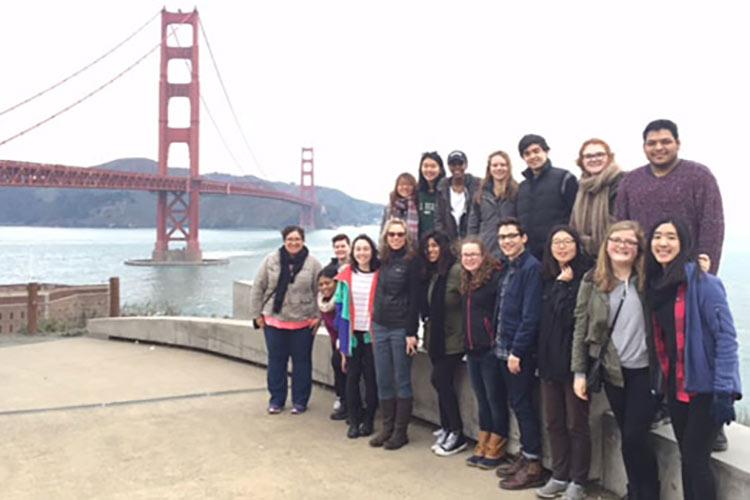As spring break approaches, the fall seems like a very long time ago. For members of the five Sophomore Residential Seminars (SRS), this is especially true, since the intensive learning, community-building, and travel experiences of the first semester have given way to a comparatively quiet second semester.
SRS remains present in our everyday lives, however, because the lessons we learned in the fall are meant to be applied to the new classes and spaces that we find ourselves in now.
SRS is a community-learning program that allows students to take a course, live, and travel together. My SRS was a sociology course called Immigrant and Sexual Cultures.
Through several texts and weekly film screenings, my classmates and I analyzed how immigration and labor intersect with gender, race, class, and sexuality. Intergroup dialogue (IGD) — a set of techniques and values that allows a group to build community across difference and productively discuss issues of conflict — aided our conversations.
For my class, a whole semester of challenging and intimate dialogue culminated in a week in San Francisco to apply course material to the real world outside of the classroom. This meant seeing gentrification, gendered and racialized labor, community organizing, and intersectionality at work.
To help the SRS experience continue into second semester, each class completes a quarter-credit course to produce a final project that summarizes our travel experience. My class has decided to make a zine as a social justice guidebook to San Francisco. We’ll include people we met, places we went, and things we did, all portrayed through the critical lenses that we developed in class.
The challenge that now faces SRS members is to bring the conversation into our new classes as well.
My spring courses seem to lack the personal and political elements that my SRS course had. We read and discuss texts, but we only scratch the surface of the social and political nuances that are involved. We consider how a text questions or inhabits oppressive power structures, but we don’t question how we are involved in those structures ourselves. IGD and the community that is built around it are conspicuously absent from my classes this semester.
Yet, this is where my experience in an IGD course becomes especially important. My fellow SRS members and I are now responsible for pushing our other classmates to ask hard questions about gender, race, and class, and to build community in spaces where community isn’t expected.
This doesn’t seem easy, but it’s really as simple as asking why a certain text is being read in class, and why the author’s perspective is trusted. I did this in one of my classes this semester and now the question of racial prejudice in academia is a recurring discussion topic.
It’s important that current SRS members and SRS alumni remember that the learning we did in our fall classes didn’t end when we returned from our trips. The SRS program teaches a more personal way of learning and seeing, which can and should be employed in any classroom or social space across campus, this semester and beyond.
